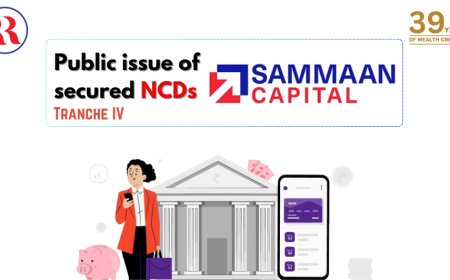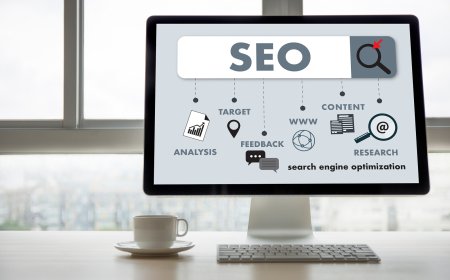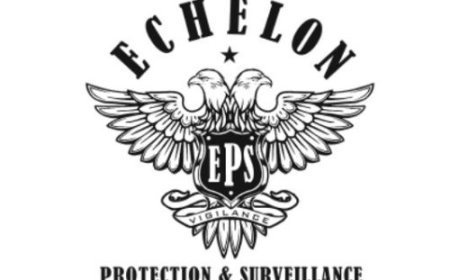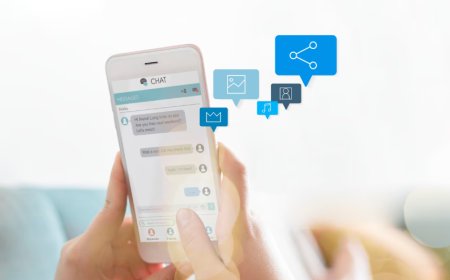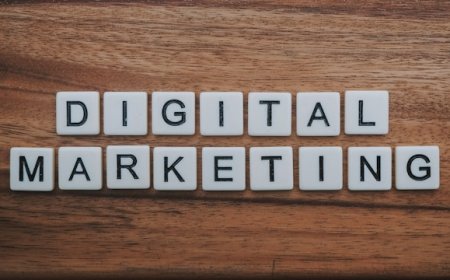Salesforce Inc.: CRM Software – Official Customer Support
Salesforce Inc.: CRM Software – Official Customer Support Customer Care Number | Toll Free Number Salesforce Inc. stands as a global leader in customer relationship management (CRM) software, revolutionizing how businesses interact with their customers since its founding in 1999. Headquartered in San Francisco, California, Salesforce pioneered the cloud-based CRM model, eliminating the need for ex
Salesforce Inc.: CRM Software – Official Customer Support Customer Care Number | Toll Free Number
Salesforce Inc. stands as a global leader in customer relationship management (CRM) software, revolutionizing how businesses interact with their customers since its founding in 1999. Headquartered in San Francisco, California, Salesforce pioneered the cloud-based CRM model, eliminating the need for expensive on-premise software installations and enabling organizations of all sizes to access powerful sales, service, marketing, and analytics tools via the internet. With over 150,000 customers worldwide—including industry giants like Amazon, Spotify, Toyota, and Adidas—Salesforce has redefined enterprise software by prioritizing scalability, customization, and seamless integration. As businesses increasingly rely on digital transformation to drive growth, Salesforce’s commitment to innovation and customer success has made it the most trusted CRM platform on the planet. For organizations leveraging Salesforce’s ecosystem, access to reliable, responsive, and expert customer support is not a luxury—it’s a necessity. This guide provides a comprehensive overview of Salesforce Inc.’s official customer support channels, including toll-free numbers, global helpline directories, access methods, industry-specific solutions, and frequently asked questions to ensure you never face a technical hurdle without a clear path to resolution.
Why Salesforce Inc.: CRM Software – Official Customer Support is Unique
Salesforce’s customer support system is not just a helpdesk—it’s a strategic extension of its product philosophy. Unlike traditional software vendors that offer fragmented, tiered, or outsourced support, Salesforce delivers an integrated, AI-powered, and customer-centric support experience designed to minimize downtime and maximize user productivity. What sets Salesforce apart is its 24/7 global availability, multilingual support teams, proactive issue detection through Einstein AI, and direct access to certified technical experts who understand not just the software, but the business processes it enables.
One of the most distinctive features of Salesforce support is its “Success Teams”—dedicated groups assigned to enterprise clients that include customer success managers, technical architects, and training specialists. These teams don’t just fix bugs; they help organizations optimize their Salesforce implementations, identify automation opportunities, and align their CRM strategy with broader business goals. This consultative approach transforms support from a reactive function into a growth accelerator.
Additionally, Salesforce’s support ecosystem is deeply integrated with its Trailhead learning platform. Customers can access self-paced tutorials, certification paths, and community forums before escalating to human support—empowering users to resolve minor issues independently. When escalation is needed, the system intelligently routes tickets based on severity, product module, and customer tier, ensuring enterprise clients receive priority handling without compromising service quality for smaller businesses.
Another unique advantage is Salesforce’s commitment to transparency. The company publishes real-time system status dashboards, detailed incident reports, and planned maintenance schedules on its Trust site (trust.salesforce.com), allowing customers to anticipate disruptions and plan accordingly. This level of openness builds trust and reduces support ticket volume by preemptively addressing concerns.
Finally, Salesforce’s support is built on a foundation of continuous feedback. Through its IdeaExchange platform, users can submit feature requests and vote on enhancements that shape future product releases. This co-creation model ensures that customer support doesn’t just respond to problems—it helps define the future of the platform itself.
Salesforce Inc.: CRM Software – Official Customer Support Toll-Free and Helpline Numbers
For customers requiring immediate assistance, Salesforce provides direct, toll-free access to certified support specialists across multiple regions. These numbers are available to active subscribers and are prioritized for enterprise, partner, and premium support plan holders. Below are the official toll-free customer care numbers for key markets. Always verify the number on Salesforce’s official website (help.salesforce.com) before use to avoid scams or third-party imitators.
United States & Canada
Toll-Free: 1-800-667-6389
Hours: 24 hours a day, 7 days a week
United Kingdom
Toll-Free: 0800 028 2177
Hours: Monday–Friday, 8:00 AM – 8:00 PM GMT
Australia
Toll-Free: 1800 868 500
Hours: Monday–Friday, 9:00 AM – 6:00 PM AEST
Germany
Toll-Free: 0800 182 0000
Hours: Monday–Friday, 9:00 AM – 6:00 PM CET
France
Toll-Free: 0800 910 525
Hours: Monday–Friday, 9:00 AM – 6:00 PM CET
Japan
Toll-Free: 00531-800-555-0338
Hours: Monday–Friday, 9:00 AM – 6:00 PM JST
India
Toll-Free: 1800 121 8000
Hours: Monday–Saturday, 9:00 AM – 9:00 PM IST
Brazil
Toll-Free: 0800 891 8272
Hours: Monday–Friday, 9:00 AM – 6:00 PM BRT
Mexico
Toll-Free: 01 800 727 7474
Hours: Monday–Friday, 9:00 AM – 6:00 PM CST
For customers in regions not listed above, Salesforce recommends using the global support portal at help.salesforce.com or contacting their local Salesforce office for region-specific contact details. International callers may also use the global support line at +1-415-901-7000 (standard international rates apply).
It is important to note that Salesforce does not charge for support calls for customers on active subscription plans. Be cautious of third-party websites or unsolicited calls offering “Salesforce support” for a fee—these are scams. Always initiate contact through official Salesforce channels.
Emergency Support for Critical Outages
For enterprise customers experiencing a system-wide outage or critical business disruption (e.g., inability to access Salesforce for sales operations, customer service, or billing), Salesforce offers an Emergency Support line. This service is reserved for P1 incidents—issues that cause complete loss of core functionality and impact revenue or customer experience.
Emergency Support (Global)
Phone: +1-415-901-7000
Email: emergency-support@salesforce.com
Response Time: Under 15 minutes for verified P1 cases
To qualify for Emergency Support, customers must have an active Premier or Ultimate Support plan and must log a ticket via the Salesforce Trust portal with a P1 severity rating. Support agents will then initiate a multi-team response including product engineers, infrastructure specialists, and account managers.
How to Reach Salesforce Inc.: CRM Software – Official Customer Support Support
Reaching Salesforce customer support is designed to be intuitive, scalable, and efficient. Whether you’re a small business owner troubleshooting a report or an IT director managing a global deployment, multiple channels are available to suit your needs and urgency level.
1. Online Support Portal (Primary Channel)
The most comprehensive and recommended method is through the Salesforce Help & Training portal at help.salesforce.com. Here, users can:
- Search knowledge articles and troubleshooting guides
- Submit support cases with screenshots, error logs, and environment details
- Track case status in real time
- Access community forums and peer solutions
- Download release notes and patch updates
Case submission is tiered by support plan. Basic users receive standard response times (24–48 hours), while Premium and Enterprise customers benefit from faster SLAs (4–8 hours for P2, 1–2 hours for P1).
2. Phone Support
As outlined in the previous section, phone support is available 24/7 for eligible customers. To expedite service, have the following ready:
- Your Salesforce org ID (found in Setup > Company Information)
- Your login email and account number
- A clear description of the issue, including error messages and steps to reproduce
- Browser type, device, and time of occurrence
Phone agents can initiate remote screen-sharing sessions (with user consent) to diagnose UI or configuration issues in real time.
3. Live Chat
Live chat is available during business hours in select regions via the Help portal. This is ideal for quick questions about permissions, report filters, or dashboard customization. Chat agents can escalate to phone or email if needed.
4. Email Support
For non-urgent inquiries, email support@salesforce.com can be used. However, this is not recommended for technical issues due to longer response times (up to 72 hours). Always use the case submission system for technical problems to ensure proper tracking and SLA compliance.
5. Salesforce Partner Network
If your organization works with a Salesforce-certified partner, they can often resolve issues faster through their own support channels or by escalating directly to Salesforce’s Partner Support team. Partners have access to additional tools, training, and priority case routing.
6. Trailhead and Community
Before contacting support, explore Trailhead (trailhead.salesforce.com) for guided learning paths and the Salesforce Success Community, where over 2 million users share solutions, tips, and workarounds. Many common issues—like login errors, permission set conflicts, or workflow rule failures—are already documented and resolved by peers.
Pro Tip: Always use your Salesforce login credentials to access support. This auto-populates your account details and ensures faster resolution. Avoid using public or guest access portals for technical issues.
Worldwide Helpline Directory
Salesforce maintains a robust global support infrastructure with regional service centers strategically located to provide localized language, time zone, and regulatory compliance support. Below is a detailed directory of official Salesforce support offices and regional helplines.
North America
Headquarters: Salesforce Tower, 415 Mission Street, San Francisco, CA 94105, USA
Support Phone: 1-800-667-6389
Hours: 24/7
Email: support@salesforce.com
Europe, Middle East & Africa (EMEA)
Regional Office: Salesforce Europe Ltd., 100 Fenchurch Street, London, EC3M 5AB, UK
Support Phone (UK): 0800 028 2177
Support Phone (Germany): 0800 182 0000
Support Phone (France): 0800 910 525
Support Phone (Netherlands): 0800 022 4254
Support Phone (Sweden): 020 800 030 500
Hours: Monday–Friday, 8:00 AM – 8:00 PM local time
Email: emea-support@salesforce.com
Asia-Pacific (APAC)
Regional Office: Salesforce Asia Pacific Pte. Ltd., 79 Robinson Road,
15-00, Singapore 068897
Support Phone (Australia): 1800 868 500
Support Phone (Japan): 00531-800-555-0338
Support Phone (India): 1800 121 8000
Support Phone (Singapore): 1800 785 6085
Support Phone (South Korea): 080-850-1234
Hours: Monday–Saturday, 9:00 AM – 9:00 PM local time
Email: apac-support@salesforce.com
Latin America
Regional Office: Salesforce do Brasil Ltda., Rua Augusta, 2670, São Paulo, SP, 01305-001, Brazil
Support Phone (Brazil): 0800 891 8272
Support Phone (Mexico): 01 800 727 7474
Support Phone (Argentina): 0800 888 7232
Support Phone (Chile): 800 810 121
Hours: Monday–Friday, 9:00 AM – 6:00 PM local time
Email: latam-support@salesforce.com
Global Support for Non-Listed Regions
For customers in Africa, the Middle East (outside UAE), or smaller markets, Salesforce recommends contacting the nearest regional office or using the global support portal. Support is available in English, and translation services can be requested during case submission.
Important: Salesforce does not maintain call centers in every country. In regions without a local number, customers are encouraged to use the nearest regional hub or submit cases via the online portal. All global support channels are monitored and staffed by Salesforce employees—never outsourced to third-party call centers.
About Salesforce Inc.: CRM Software – Official Customer Support – Key Industries and Achievements
Salesforce’s CRM platform serves over 150,000 customers across virtually every industry, but its impact is most profound in sectors where customer engagement, data accuracy, and compliance are mission-critical. Below are key industries that rely on Salesforce—and the achievements that demonstrate its transformative power.
1. Financial Services
Banks, insurance firms, and wealth management companies use Salesforce Financial Services Cloud to unify customer data across insurance policies, investment portfolios, and loan histories. JPMorgan Chase implemented Salesforce to reduce customer service call times by 40% and increase cross-selling success by 28%. Allstate Insurance now uses Salesforce Einstein AI to predict customer churn and proactively reach out with retention offers.
2. Healthcare & Life Sciences
Salesforce Health Cloud enables providers to manage patient journeys, coordinate care teams, and comply with HIPAA and GDPR. Mayo Clinic uses Salesforce to personalize patient communications and reduce no-show rates by 32%. Pfizer leverages Salesforce to streamline clinical trial recruitment and manage relationships with physicians and research institutions.
3. Retail & E-commerce
Retailers use Salesforce Commerce Cloud and Service Cloud to deliver seamless omnichannel experiences. Nike’s digital transformation centered on Salesforce, enabling personalized product recommendations and real-time inventory sync across 700+ stores. Sephora’s Beauty Insider program, powered by Salesforce, has grown to over 25 million members, driving 75% of total revenue.
4. Telecommunications
AT&T, Verizon, and Vodafone use Salesforce to reduce customer churn, automate billing disputes, and personalize retention offers. Vodafone reported a 20% increase in customer satisfaction after deploying Salesforce Service Cloud with AI-powered virtual agents.
5. Government & Nonprofits
Salesforce.org, the nonprofit arm, provides free or discounted CRM tools to charities, schools, and public agencies. The American Red Cross uses Salesforce to coordinate disaster response volunteers and manage donor relationships. The U.S. Department of Veterans Affairs leverages Salesforce to streamline benefits applications and improve veteran outreach.
6. Manufacturing & Industrial
General Electric and Siemens use Salesforce IoT and Service Cloud to monitor equipment performance remotely and schedule predictive maintenance. This has reduced unplanned downtime by up to 50% in some facilities.
Achievements & Recognition
- Ranked
1 in Gartner’s Magic Quadrant for CRM Customer Service Platforms for 10 consecutive years (2014–2023)
- Recognized as a Leader in Forrester Wave™: Service Cloud Platforms, Q4 2023
- Over 10 million users on the Trailhead learning platform
- 99.9% average system uptime over the past 5 years
- 150+ AppExchange partners offering certified integrations
- $31.4 billion in annual revenue (FY2023)
- 25,000+ employees worldwide
- Named one of Fortune’s “100 Best Companies to Work For” for 15 consecutive years
Salesforce’s success stems not just from its technology, but from its unwavering commitment to customer success. Its support infrastructure is designed to mirror this philosophy—ensuring that every organization, regardless of size or sector, can unlock the full potential of its CRM investment.
Global Service Access
Salesforce’s global service access model is built on three pillars: availability, accessibility, and adaptability. Unlike legacy CRM providers that limit support to business hours or specific regions, Salesforce ensures that its customers can access help anytime, anywhere, in their preferred language and format.
24/7 Global Coverage
With support centers operating across North America, EMEA, and APAC, Salesforce ensures that when it’s nighttime in San Francisco, it’s daytime in Bangalore or London. This round-the-clock coverage means no matter when a critical issue arises, there’s always a live agent ready to assist.
Multi-Language Support
Salesforce offers support in over 20 languages, including Spanish, French, German, Japanese, Mandarin, Portuguese, Korean, Dutch, Swedish, and Arabic. Language preferences can be set in your Salesforce profile, and cases submitted in your native language are routed to agents fluent in that language.
Mobile & Self-Service Access
The Salesforce mobile app includes a direct support button that allows users to submit cases, view knowledge articles, or initiate a call from their smartphone. This is especially valuable for field service teams, sales reps on the road, or customer service agents working remotely.
Integration with Third-Party Tools
Salesforce support integrates with popular collaboration tools like Microsoft Teams, Slack, and Zoom. Enterprise customers can trigger support tickets directly from these platforms, share screen recordings, or schedule live troubleshooting sessions without leaving their workflow.
Compliance & Data Sovereignty
Salesforce operates data centers in the U.S., EU, Japan, Australia, and Canada, ensuring that customer data remains within regional legal boundaries. Support teams only access data necessary to resolve issues, and all interactions are logged for audit compliance under GDPR, CCPA, HIPAA, and other frameworks.
Proactive Support & Predictive Analytics
Using Einstein AI, Salesforce monitors system health and user behavior to detect anomalies before they become issues. For example, if a user repeatedly encounters an error when generating a report, the system may automatically suggest a fix or notify a support agent to reach out proactively. This predictive model reduces ticket volume by up to 30% for early adopters.
Partner & Ecosystem Access
Salesforce’s global partner network includes over 15,000 certified consultants, developers, and resellers who can provide on-site or remote support. These partners undergo rigorous training and are authorized to escalate issues directly to Salesforce’s engineering teams, ensuring faster resolution for complex customizations.
Through this multi-layered, globally integrated service model, Salesforce ensures that no customer is ever left without access to the help they need—when they need it, how they need it.
FAQs
Is Salesforce customer support free?
Yes, Salesforce customer support is included at no additional cost for all active subscription customers. Support tiers vary by plan (Basic, Professional, Enterprise, Unlimited, and Premier), but phone, email, and portal access are provided as part of your license fee. Third-party consultants or custom development services may incur additional charges.
How do I find my Salesforce Org ID?
Log in to your Salesforce account, click the gear icon in the top-right corner, select “Setup,” then navigate to “Company Information.” Your Org ID is listed under “Organization ID.” You’ll need this when contacting support.
Can I get help outside business hours?
Yes. Salesforce offers 24/7 phone and portal support for all customers with active subscriptions. Emergency support is available around the clock for P1 incidents.
What if I can’t reach support by phone?
If phone lines are busy or unavailable, use the Salesforce Help & Training portal (help.salesforce.com) to submit a case. You can also use live chat during business hours or post your question in the Salesforce Success Community.
Does Salesforce offer training with support?
Yes. Salesforce Trailhead offers free, self-paced learning modules on every product feature. Enterprise customers also receive complimentary training credits and access to virtual instructor-led sessions through their customer success manager.
How long does it take to get a response to a support case?
Response times vary by support plan and case severity:
- P1 (Critical): 1–2 hours (Enterprise/Unlimited)
- P2 (Major): 4–8 hours
- P3 (Minor): 24 hours
- P4 (Informational): 48–72 hours
Can I speak to a human for billing questions?
Yes. Billing inquiries can be directed to the dedicated finance support line at 1-800-667-6389 (US/Canada) or your regional support number. Have your invoice number and account details ready.
Is there a Salesforce support app?
Yes. The Salesforce Mobile App includes a “Help” section with quick access to support articles, case submission, and phone dialing. Download it from the App Store or Google Play.
What should I do if I suspect a phishing attempt?
Never click links or provide credentials to unsolicited emails claiming to be from Salesforce. Forward suspicious messages to phishing@salesforce.com and report them via the Trust portal. Salesforce will never ask for your password via email or phone.
Can I upgrade my support plan?
Yes. Contact your Salesforce account executive or submit a request via the Help portal to upgrade your support tier. Upgrades typically take 1–3 business days to activate.
Conclusion
Salesforce Inc. has redefined what customer support means in the modern enterprise era. Far from being a mere afterthought, its customer care infrastructure is a strategic asset—designed to empower users, accelerate digital transformation, and ensure that every interaction with the platform drives measurable business value. With 24/7 global access, AI-enhanced diagnostics, multilingual specialists, and industry-specific expertise, Salesforce doesn’t just fix problems; it prevents them.
Whether you’re a startup using Salesforce Essentials or a Fortune 500 enterprise managing a global deployment, your success is built on the reliability of its support system. The toll-free numbers and helplines provided in this guide are your lifeline to that system—verified, official, and always ready. Remember: the best CRM software in the world is only as powerful as the support behind it. Salesforce has made that support not just accessible, but exceptional.
For the latest updates, official contact details, or to submit a support case, always visit help.salesforce.com. Stay informed, stay supported, and unlock the full potential of your Salesforce investment.










